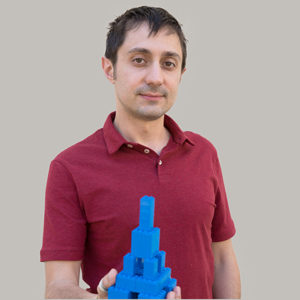Cities are the social and economic innovation core of modern nations. Despite their importance, they still suffer from many problems: social segregation, accessibility inequality, overcrowding, pollution and infrastructure malfunctions are only a few examples. In my research, I exploit the specific tools of Complex Systems Physics and Machine Learning to find new approaches for studying Urban Environments, looking for solutions to their sustainability problems. I am also interested in general techno-social systems’ modelisation (Music Production, Railway Systems, Innovation Dynamics), involving citizens in the research process through their engagement in gamified social experiments.


